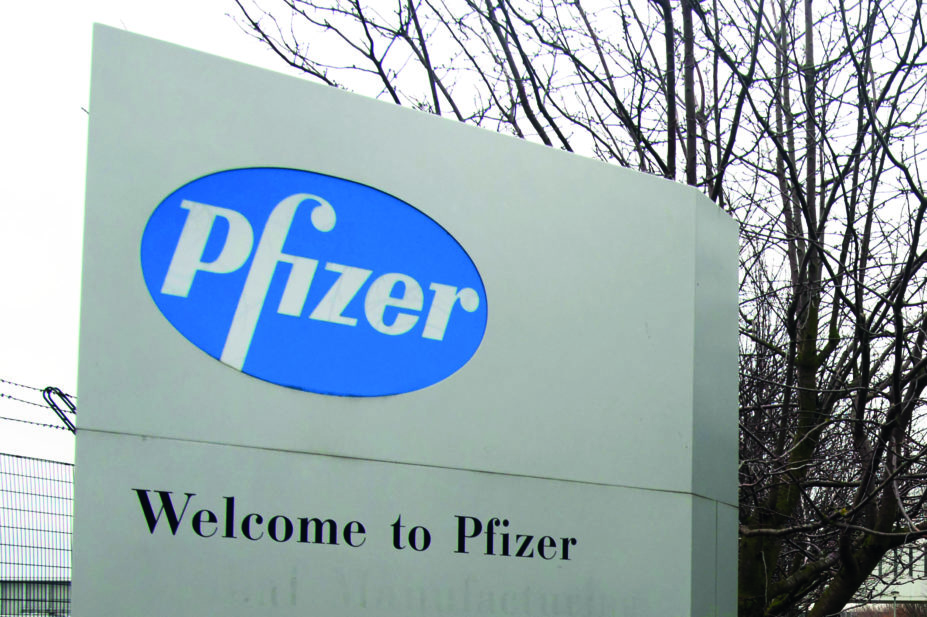
Chris Laurens / Alamy Stock Photo
The UK competition watchdog has fined two pharmaceutical companies £90m for charging what it has called excessive and unfair prices in the UK for phenytoin capsules.
Pfizer has been fined £84.2m and its distributor Flynn Pharma £5.2m after they were found to have broken competition law with excessive price hikes to the NHS — of up to 2600% — when the drug was de-branded from ‘Epanutin’ to ‘Phenytoin Sodium Flynn Hard Capsules’ in 2012. The CMA has given both companies between 30 working days and 4 months to reduce their respective prices to ensure no risk of ongoing supply issues to patients.
In a statement issued on 7 December 2016, the UK’s Competition and Markets Authority (CMA) said the price the NHS was charged for 100mg packs of the drug rose from £2.83 to £67.50, before being reduced to £54.00 from May 2014.
The price increase resulted in the NHS increasing its spending on the drug from about £2m a year in 2012 to about £50m in 2013.
“The prices of the drug in the UK have also been many times higher than Pfizer’s prices for the same drug in any other European country,” the CMA statement said.
Philip Marsden, chair of the case decision group for the CMA’s investigation, says: “The companies deliberately exploited the opportunity offered by de-branding to hike up the price for a drug which is relied upon by many thousands of patients. Businesses are generally free to set prices as they see fit but those holding a dominant position should not abuse this situation and set prices that are excessive and unfair.
“There is no justification for such rises when phenytoin sodium capsules are a very old drug for which there has been no recent innovation or significant investment,” he adds.
However, Pfizer is appealing the CMA’s decision and says its “divestment” of the product to Flynn was done with integrity, and believes it “fully complies with established competition law”.
In a statement, Pfizer said: “Phenytoin capsules were a loss-making product for Pfizer and the Flynn transaction represented an opportunity to secure ongoing supply of an important medicine for patients with epilepsy, while maintaining continuity of manufacture.
“When Flynn launched its product, the company set a price that was between 25% and 40% less than the price of the equivalent medicine from another supplier to the NHS which had long been regulated, and appeared to be acceptable to the Department of Health. Against that background, Pfizer believes the CMA’s findings are wrong in fact and law and will be appealing all aspects of the decision.” The manufacturer adds that the CMA ruling highlights “real policy and legal issues” concerning the Department of Health and the CMA’s role in regulating drug prices in the UK. It says it will seek clarity on these issues as part of the appeal process.
But the CMA counterargues that although Pfizer has claimed that Epanutin was loss-making before it was de-branded, the watchdog has estimated that all such losses would have been recovered within two months of the price rises.
Meanwhile, Flynn Pharma, which is also appealing the decision, says the product’s price is “fair”. Flynn holds four licences for phenytoin sodium capsules in the UK (one for each strength: 25mg, 50mg, 100mg and 300mg capsules) but the company highlights that there are 60 licences or authorisations in the UK for capsules, the majority of which are parallel import licences. This is in addition to a number of licences for tablets and other presentations of the drug.
In a statement, Flynn said the CMA’s decision is based on a “wholly flawed” understanding of the UK pharmaceutical market.
David Fakes, chief executive at Flynn Pharma, comments: “Phenytoin sodium capsules are already less expensive than the alternative equivalent drugs in the UK market. It beggars belief that the CMA seeks to punish Flynn for selling phenytoin capsules at a significant discount to phenytoin tablets. Phenytoin tablets are used for an identical purpose and for the past nine years have been sold at a price negotiated and accepted by the Department of Health.” The company’s statement added that there are alternative epilepsy drugs in the UK to phenytoin and that it makes little sense that the CMA has chosen to penalise the cheaper therapy supplier.
“The CMA has deemed Flynn’s price to be excessive and unfair by reference to an entirely novel theory as to the level of margin that can be made by a generic company. This theory has never been discussed, let alone agreed, with the pharmaceutical industry,” the company said.
“This has resulted in the CMA making a serious error in its decision which we believe may have unintended consequences on future investment in, and availability of, generics.”
However, the British Generic Manufacturers Association, which represents around 90% of the UK generic medicine supply, was quick to criticise the Pfizer-Flynn alliance. (Flynn Pharma is not a BGMA member.)
Warwick Smith, its director general, says: “Pfizer’s cynical behaviour flies in the face of the virtuous circle between innovator and generic companies which normally works extremely well in the interests of patients and the NHS.

Source: Courtesy of British Generic Manufacturers Association (BGMA)
Warwick Smith, director general of the British Generic Manufacturers Association (BGMA), says generic companies sometimes need to invest in older drugs to keep them on the market with resultant price increases, but that the BGMA would never support activity designed to artificially increase prices
“When originators put their resources into artificially increasing the commercial value of their older products by extending their monopoly, they not only cost the NHS more money, but fail to live up to their promise to society to deliver much needed new medicines.”
He adds that generic companies sometimes need to invest in older drugs to keep them on the market and so there might be price increases, but “we would never support activity designed purely to artificially increase prices”.
The Association of the British Pharmaceutical Industry, which represents manufacturers of branded medicines, says it does not support the practice of “price hikes” to generic medicines.
“It’s appropriate that the complexities of this case are considered through the ongoing legal process,” a spokesperson for the association says.
Duncan Liddell, competition partner at law firm Ashurst, comments that illegal excessive pricing is very difficult to prove. “How do you identify the ‘right’ price and how much extra margin is ‘excessive’? However, here the CMA has clearly decided to make a point with a record UK fine. The CMA has been under pressure to increase its antitrust enforcement output.”
The CMA began its investigation into the pricing strategies being used by Pfizer and Flynn in August 2015 and has four other ongoing investigations into the pharmaceutical sector. In February 2016, it fined a number of companies a total of £45m for anti-competitive actions relating to the supply of paroxetine, a type of selective serotonin reuptake inhibitor.


